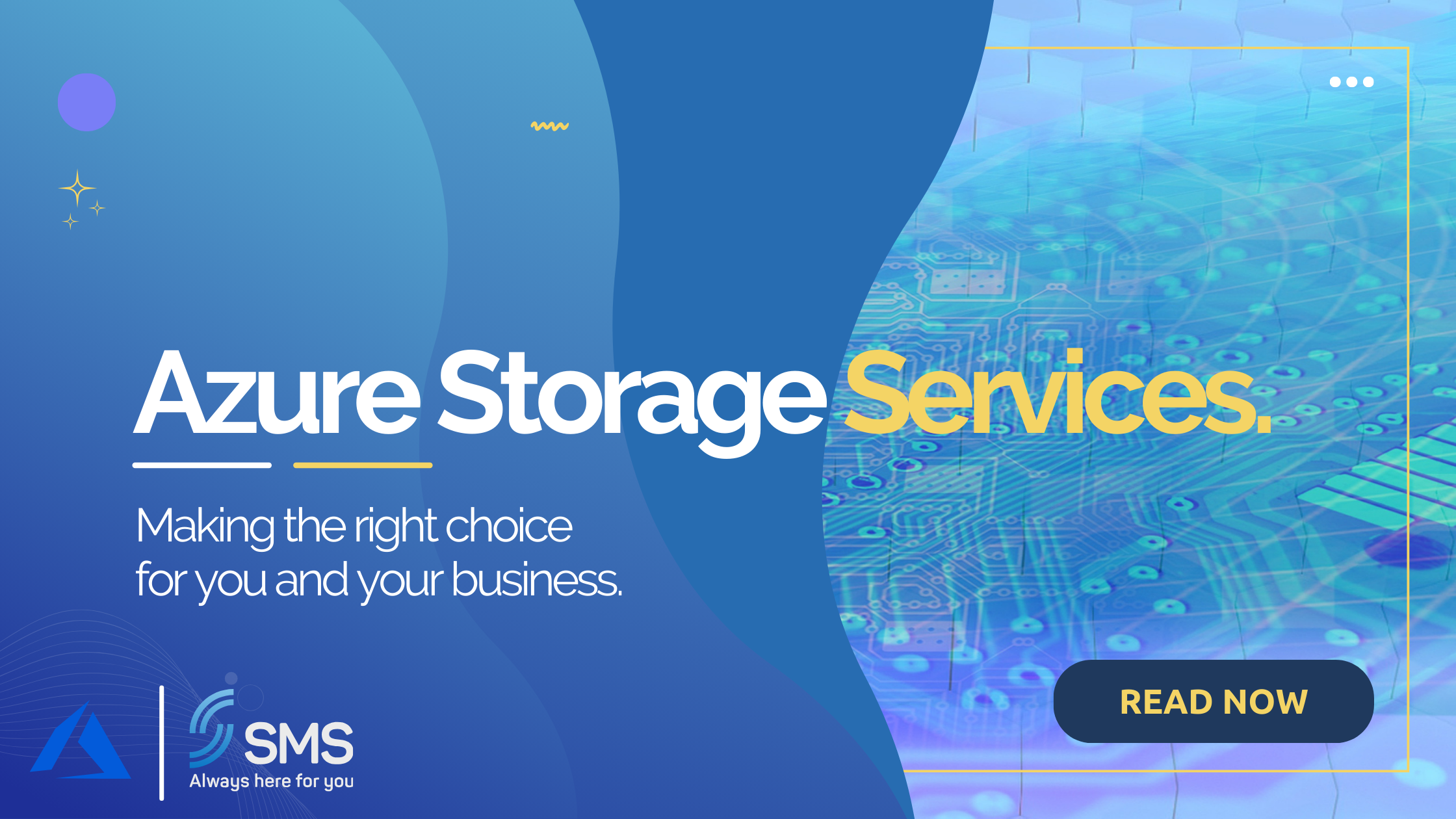Understanding Storage Options in Microsoft Azure: Making the Right Choice for Your Data
In the world of cloud computing, data storage plays a critical role. As businesses increasingly rely on the cloud for a myriad of services and applications, the demand for reliable and scalable storage solutions has skyrocketed. With the exponential growth of data generation and consumption, storage management and maintenance bring their own unique challenges. In this blog post, we will explore the various storage solutions offered by Microsoft Azure, delving into their unique features, use cases, and benefits to help you better understand and assess your own storage needs.
Before diving into Azure’s storage types, let’s briefly discuss the significance of storage in cloud computing and the challenges associated with handling large amounts of data.
Importance of Storage in Cloud Computing
Effective data storage is a vital component of any cloud computing strategy. Whether it’s a matter of securing essential business information or providing seamless access to applications and services, cloud-based storage solutions simplify various tasks considerably. They enhance collaboration, reduce hardware costs, facilitate scalability, and contribute immensely to operational efficiency.
Challenges of Managing and Maintaining Large Amounts of Data
Handling vast quantities of data presents numerous challenges:
- Ensuring data security and compliance
- Effective management of storage infrastructure, including hardware and software upgrades
- Performance optimization and latency reduction
- Backup and disaster recovery strategies
When considering these challenges, selecting the right storage solution becomes all the more critical. So, let’s delve into the various storage types available on Microsoft Azure.
Azure Storage Types
Microsoft Azure offers several powerful storage solutions, each with unique features and benefits catering to distinct use cases.
1. Azure Blob Storage
Azure Blob Storage is a massively scalable object storage solution that allows you to store a wide range of unstructured data, such as images, video files, and other media. Key features and use cases include:
- Store large amounts of unstructured data for content delivery
- Optimised for storing massive text or binary data
- Supports tiered storage for cost savings based on data access patterns
- Backup and archival of on-premises data
2. Azure Files
Azure Files is a managed file-sharing service for the cloud, facilitating shared access to files among users. Offering SMB and NFS* protocols, it allows seamless migration of on-premises file shares to the cloud. Key features and use cases include:
- Fully managed cloud file share
- Supports both SMB and NFS* protocols
- Offers premium file shares for performance-critical applications
- Ideal for migrating on-premises file shares to the cloud
3. Azure Queue Storage
Azure Queue Storage is designed to handle asynchronous messaging between application components. It enables the communication of large volumes of messages with low latency. Key features and use cases include:
- Asynchronous messaging between application components
- Can handle large volumes with low-latency access
- Reduces the dependency between application components
- Ideal for decoupling applications or passing data between microservices
4. Azure Table Storage
Azure Table Storage offers a cost-effective storage solution for semi-structured NoSQL data. Easy to scale and manage, this storage type is designed to handle high volumes of flexible-schema data. Key features and use cases include:
- Cost-effective storage for semi-structured data
- Supports OData protocol for advanced querying capabilities
- Can cater to high volumes of data with flexible schema
- Ideal for storing web application data, IoT data, and more.
5. Azure Disk Storage
Azure Disk Storage is a robust storage solution designed to handle persistent and fault-tolerant Virtual Machine (VM) disks. It supports both managed and unmanaged disks, providing high performance, scalability, and availability. Key features and use cases include:
- Persistent disk storage for Azure VMs
- Support for both managed and unmanaged disks
- High-performance capabilities, including SSD-based disks
- Seamless integration with other Azure services like Virtual Machines, SQL databases, etc.
Making the Right Choice for Your Data Storage Needs
As mentioned earlier, selecting the right storage solution is crucial to meet your specific data storage needs. Here are some factors to consider when making this decision:
- Type of data: Consider the type of data you need to store, whether it’s unstructured or structured, and its volume.
- Access patterns: How frequently do you need to access your data? Is it for real-time processing or archival purposes?
- Performance requirements: Does your application require low latency and high throughput?
- Budget: Evaluate your budget and determine the most cost-effective storage solution for your needs.
- Integration with other services: Consider how well the storage solution integrates with other Azure services you may be using.
By meticulously assessing these factors, you can make an informed choice regarding the Azure storage type that aligns best with your data storage requirements. Moreover, partnering with SMS, a trusted Microsoft ally, empowers us to guide you through the array of options and assist you in selecting the optimal solution for your business.
In conclusion, Microsoft Azure offers a wide range of storage solutions to cater to diverse data storage needs. Whether it’s storing unstructured data, managing file shares, handling asynchronous messaging, or persisting VM disks, there is a suitable storage type available on Azure. By understanding the features and use cases of each storage type and considering your specific requirements, you can make the right choice for effective data storage in cloud computing. So, don’t wait any longer – explore Microsoft Azure’s storage solutions today and elevate your business to new heights!
Want to speak with a member of our team? Connect with us through our support email or give us a call at 01925 818448 to address any questions you may have. Your companies data is a priority to us!
Why SMS?
Since 2006, our cloud services have supported over 4,500 businesses, managing more than 27,000 mailboxes and other services. Our UK-based team of experts is available 24/7/365 to provide skilled and helpful support and keep your business online. We offer cost-effective solutions and streamline billing with everything under one roof. You can also count on our migration experts to guide you through the planning and execution phases. Experience reliable, affordable, and comprehensive cloud technology with SMS.


